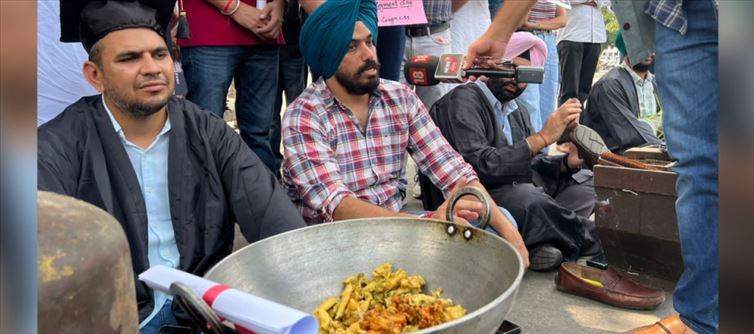
In a striking revelation that underscores the paradoxes within our educational and employment systems, haryana has witnessed an extraordinary number of highly qualified candidates applying for the most unexpected of positions: sweeper jobs. The figures are nothing short of astonishing—6,000 postgraduates and a staggering 40,000 graduates are vying for roles traditionally seen as entry-level and unskilled.
This phenomenon invites a profound reflection on the state of employment and education in India. On the surface, it appears as a stark contradiction: individuals with advanced degrees and extensive academic backgrounds seeking roles that seem far removed from their qualifications. Yet, this situation is emblematic of deeper systemic issues that deserve scrutiny.
The Disconnect Between education and Employment
The sheer volume of highly educated individuals applying for such positions highlights a glaring disconnect between educational qualifications and job market realities. It serves as a stark reminder of the challenges that many graduates face in securing employment commensurate with their academic achievements. In a country where the number of higher education institutions and degrees is growing, the disparity between the supply of educated individuals and the demand for skilled jobs is becoming increasingly pronounced.
The irony is not lost on those observing this trend. A postgraduate degree—often seen as a ticket to higher echelons in professional fields—now represents a qualification that seemingly leads to an application for a position with minimal educational requirements. This juxtaposition sheds light on the systemic inefficiencies and the need for a more robust alignment between educational outcomes and labor market needs.
Socioeconomic Implications
The influx of highly qualified candidates into low-skilled job markets also reflects broader socioeconomic issues. For many, these positions may represent a last resort amidst an environment of economic uncertainty and high competition. The pursuit of these roles may not merely be about the nature of the work but rather a means to ensure financial stability in the face of fewer opportunities in their chosen fields.
This situation also underscores the need for a reevaluation of career pathways and vocational training. If individuals with advanced degrees are willing to take on roles far beneath their qualification levels, it suggests a critical need for better career guidance, skills development, and job creation strategies that can address the evolving demands of the job market.
The Call for Systemic Reform
The haryana example serves as a powerful call for systemic reform. It beckons policymakers, educational institutions, and industry leaders to engage in a dialogue about the future of work and the role of education in preparing individuals for a dynamic job market. It is an opportunity to reassess the value and relevance of degrees, the effectiveness of educational programs, and the mechanisms through which job seekers can be better aligned with employment opportunities.
In conclusion, the sight of thousands of postgraduates and graduates applying for sweeper positions is not merely an anecdote but a potent symbol of larger systemic issues. It urges us to confront the growing chasm between educational attainment and job market realities, and to strive for solutions that bridge this divide. The path forward lies in acknowledging these challenges and innovating in ways that ensure that every individual, regardless of their educational background, has access to meaningful and fulfilling employment.




 click and follow Indiaherald WhatsApp channel
click and follow Indiaherald WhatsApp channel